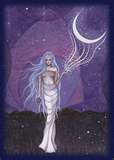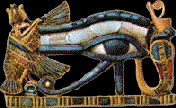And wouldn't you know, I'd explain the test but not what it means to be right or left-brained. Good going, Cath. Okay this is what a few people with alphabets after their names have to say about certain autonomic functions of the ole cranium corpora:
To be right-brained is said to contain all the processes of artistic, creative feelings with small frustrations that they aren't being understood (or expressed enough). It also means you tend to think with your heart though knowing it's not always best, yet you're pulled to follow familiar feelings before anything else. This comes from a lifetime of instinctual progress and trusting the "inner voice" you're convinced you have. Which you do. You're governed by the left side of your body, but not your left hand however, that is cultural or genetic, and these quantifications about how our brain functions are basically subjective.
A left-brained thinker enjoys watching things in life that make sense, that contain logic and objecivity. They are governed by the right-side of their bodies (again, not hand) They respond favorably to numbers. They feel comfortable with schedules, directions, and to know if they're pleasing people. That is a need to see the reflection of their work in the smiling eyes of others, it's very human, and left-brained people are, if anything, anxious to know if their advice on something has worked out. They enjoy fixing things, physically or emotionally. It's hard for a left-brained person to understand the world that has no balance, no grounding, but they use their great logic to find a way to adjust. They can be very accomplished musicians because of the mathematics it's based upon. For some reason, lefters tend to be more deeply religious (not same as spiritual).

The righter is someone who can tolerate a certain degree of, say, clutter, they can be comfortable with a mess here or there. Structure sometimes makes them uncomfortable but as they age they adjust to the vagaries of life. This is in conrast to left-brainers, who cannot easily abide anything out of place and will sometimes make themselves late because they have to leave the house "just so" with certain things in their "proper" place. This isn't a phobia, it's a character trait and one my mother always wished I had. Sorry Ma.
For left-brained folks, the world must have a "schedule" a kind of definition to use in times of confusion. Logic is important to the lefter. They possess great skill organization but at times neglect parts of their inner selves in order to show an outer "perfection" of discipline and order. It's hard for a left-brainer when coming into an area of no structure, but they are adaptable people and find a way. They're also very loyal and intelligent.
As for righters, they like to work with "all or nothing" whereas a lefter will make use of what is handy.
The right-brainer sometimes loses track of what they're doing, what time it is, what they have scheduled next. They tend to think in pictures. The left-brainer tends to think in words, even numbers at rare times. Although the righter is the more artistic generally, their greatest enduring friends are usually lefters, who care for them and show them ways to organize. The righter can paint, play music, dance, but has trouble finding the car keys and whether they left the iron on. The lefter knows exactly what's what in their world. This makes them comfortable.
If you tend to dream about "putting things together" you probably allow your left-brain tendencies to roam free, and aren't taken in by people's criticisms.
If you dream about houses and getting lost alot, you are allowing your own right-brain urges to express themselves in daily life, reflected in your subconscious. You are hurt by people's remarks too easily but with age, don't dwell on them.
Did you know your brain speaks in a language of pictures, sounds, feelings, smells, tastes, i.e., the input from your senses. It can't work with "negative" information, or things you haven't experienced yet. It can only work with what you've experienced in life through your 5 senses, which it manipulates into the imagination.
I could go on, there's so much research here, but this is just the part I forgot in the part I remembered after I forgot it the first time (see?) Right-brained clutter I guess....
Something neat: Look through these pictures and see which eye tends to find the images hidden within. Gallery1 Click on this then at the bottom click on "Start Slideshow" it should work.
==========================================
Basics courtesy of Psychology Today, Mayo Clinic Scan Studies, rev. 2003.



 Okay I didn't forget, just got caught up in the business of life. The little experiment of holding an object up to each eye and staring through the center for awhile, then noting which direction your eyes tend to move, shows you if you're right or left-brained. If your eyes moved to the left, you're right-brained (so "they" say) and if to the right, you're left-brained. There's some basic data for this, as many left-handed people looked to the right - meaning their left frontal lobe was more active. The brain is so complex yet perfectly contained, isn't it?
Okay I didn't forget, just got caught up in the business of life. The little experiment of holding an object up to each eye and staring through the center for awhile, then noting which direction your eyes tend to move, shows you if you're right or left-brained. If your eyes moved to the left, you're right-brained (so "they" say) and if to the right, you're left-brained. There's some basic data for this, as many left-handed people looked to the right - meaning their left frontal lobe was more active. The brain is so complex yet perfectly contained, isn't it? 

 seen from my window
seen from my window









 It's fascinating how easily our cameras can be fooled. If we see smoke, we may immediately think of fire, a comparative interpretation of our brain, and even "see" flames where there are none. What if we could bypass those cameras and present pictures directly to the dura of another kind, perhaps infra-red images. We'd see things normally invisible to the rods and cones of the retina. Would it be illusional? It depends on the assumtions made by the brain, I'd say.
It's fascinating how easily our cameras can be fooled. If we see smoke, we may immediately think of fire, a comparative interpretation of our brain, and even "see" flames where there are none. What if we could bypass those cameras and present pictures directly to the dura of another kind, perhaps infra-red images. We'd see things normally invisible to the rods and cones of the retina. Would it be illusional? It depends on the assumtions made by the brain, I'd say. 
















































